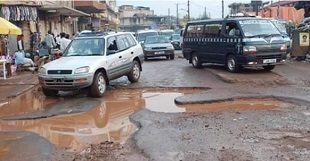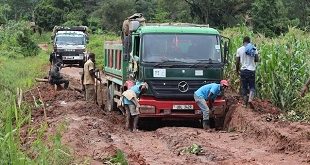There is a second category of Ugandans dissatisfied with Museveni who do not see the opposition as a viable alternative. These are sometimes disgruntled Museveni supporters who need to be convinced to jump the NRM ship or fence sitters who need to be won over. But the opposition, armed with excessive self-righteousness, believes that whoever is dissatisfied with Museveni is automatically their voter. Big mistake. The fact that someone is unhappy in their marriage does not mean they will divorce. And even when they divorce, it does not necessarily mean they will accept the next person who comes telling them love stories.
I admit that elections in Uganda are neither free nor fair. The entire process is heavily tilted in favour of Museveni and the NRM who use the infrastructure and resources of the state to limit the space for the opposition. However, many opposition parties in Africa have faced similar or even worse conditions and still prevailed. Because they cannot alter the behavior of Museveni, the opposition need to focus more on fixing their internal weaknesses.
Take the 2016 elections as an example. The country had 28,024 polling stations but FDC had polling agents in only 7,000. It is true that many of their agents were bought off by the NRM on polling day. But even that shows how disloyal their agents were. FDC had many polling agents across the country that could not be bribed and intimidated from their duty. That is the caliber of agents it needs.
To improve its organisational depth, the opposition in Uganda needs to unite as a broad coalition. Yet the opposition continues to fragment. Take for instance the emergence of Bobi Wine (with NUP) as a strong opposition figure. NUP, a child of People Power, is an offshoot of Besigye’s Defiance and they share the same base and aspirations. Why then can’t NUP unite forces with FDC to gain better organisational depth? What are the ideological and policy differences that keep them apart – other than the personal and egotistical ambitions of Besigye and Bobi Wine?
Besides, the only way for the opposition to grow is to win the undecided and NRM fence sitters. And given Uganda’s social configuration (40 ethnic and linguistic groups and many religious groups), it is almost impossible to have one political party command a majority. The only way to build a majority is to form a broad coalition. And this is exactly what Museveni has done for his NRM – a large collection of powerful elites from the different ethnic, linguistic and religious groups of the country.
Museveni has achieved this through one of the largest patronage systems ever seen in Africa – 81 ministers, ambassadors, hundreds of presidential advisors, innumerable heads of government agencies etc. But it has also meant that he tolerates diversity of opinions in his camp. Yet the opposition in Uganda is consumed by a passionate desire for ideological purity among followers and total loyalty to individual party leaders so much so that even minor dissenters are treated as internal moles. The result is that the opposition are eating each other – NUP is cannibalising DP and FDC without making any dent on NRM. More than Museveni’s machinations, it is these internal schisms killing the opposition.
****
 The Independent Uganda: You get the Truth we Pay the Price
The Independent Uganda: You get the Truth we Pay the Price




World politics has drastically changed because of the following reasons;
1.The political underdogs have surprised the World for example Obama;What does this mean?The Orthodox politics of belonging to a certain tribe,race,age and social class is long gone.Actually people believe in social solidarity especially the poor which is kind of cropping up in Uganda for example the NUP nuisance they are many and can surprise the nation.
2.In Economics;there is what is known as factors that affect demand i.e tastes and preference :for example demand of a good can be based on Price of the product,season when the product is sold.In reference to the Youth elections;is there demand for any type of change?
3.In Uganda you will be surprised that the youth of today are so grateful to NRM;My friend recently built a nice house i was surprised that her gate and Bulgars for the windows were locally fabricated by a young man in his 30’s who could have benefited from the youth livelihood funds allocated to Metal fabricators.
4.In Parts of Africa and Latin America its not yet too safe to allow full brown democracy because of partly the primitive social and economic setups in these continents.
5.There could be a few pockets of people in the world who are too rigid and still believe in white supremacy;political inheritance where every generation in the family belong to party x or y;such mentality has no place in this world.
6.The urban youth in Uganda have only one challange they are in places they are not supposed to be thats why they behave they way they do;why do you want to be in Kampala and salivate at people who eat from Cafe Javas and drive SUVs?
7.The security team in Uganda knows that the youth are not sophisticated at all in their workings they just blow hot and cold.
8.Timothy Kalyegeira always wants to sound sophisticated;he always wants to reconstruct the political history of Uganda which he is not sure of;he speaks highly of the first world yet he has even has no passport;He has been to TZ and Kenya by bus;he likes light skinned women(as if he is a Muganda);he feels he can be employed to write the Queen of England’s Autobiography generally he is in his own world.I dont find him that deep and sophisticated.